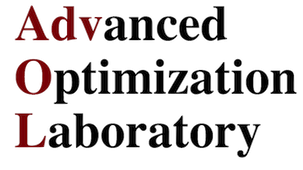| Speaker: | Leon Lasdon |
| Department of Management Science and Information Systems | |
| University of Texas, USA |
Title: Constructing Efficient Portfolios of Oil and Gas Exploration and Development Projects
Most companies engaged in exploration and development of hydrocarbon reservoirs use some form of portfolio optimization to decide how to allocate funds among projects. Such projects involve both below ground risks, for example uncertainties in reservoir parameters like porosity, permeability and saturation, and above ground risks, the main one being oil price uncertainty. We describe widely used approaches for modeling these uncertainties, and for generating scenarios of project returns via monte carlo simulation. Then we discuss some popular formulations which minimize some risk measure subject to achieving at least a specified expected return within a specified budget limit. A realistic example is used to illustrate the ranges and distributions of return, and the effects of different risk measures.
Such portfolio models provide guidance on how to allocate funds now, but offer limited insight as to how projects should be conducted in the future. Decision tree analysis provides a powerful framework for dynamically optimizing a single project, but there is currently little known about dynamic operation of a portfolio of related projects. We discuss ongoing research at the University of Texas at Austin on these issues, conducted within the Center for petroleum Asset Risk Management (CPARM)-see http://www.cpge.utexas.edu/cparm/
Short Biography:
Leon Lasdon received his Ph.D. in Systems Engineering from Case Institute of Technology in 1964. He taught in the Operations Research Department at Case Western Reserve University from 1964 to 1977, when he joined the Management Science and Information Systems Dept., McCombs School of Business, The University of Texas at Austin. He holds the David Bruton Jr. Chair in Business Decision support.
Professor Lasdon teaches two MBA level courses: Decision Support Modeling and Financial Modeling and Optimization. He also teaches Ph.D. level courses in nonlinear optimization and large-scale systems optimization. He was one of three faculty named "outstanding graduate teacher" in 1984. In recent years he has incorporated an active learning approach into his classes, emphasizing student discussion and problem solving in small groups.
Prof. Lasdon is co-author of the Microsoft Excel Solver. His GRG2 nonlinear optimizer is used in that solver. For more information see an article titled "Design and Use of the Microsoft Excel Solver," which appeared in the INFORMS journal INTERFACES, Sept.-Oct., 1998. His research and consulting activities include optimization software, supply chain modeling and optimization, customer relationship management and other marketing issues, process control, and engineering design optimization. His nonlinear optimization software is widely used in financial asset allocation, option pricing, process control, and engineering design. Recent consulting activities include gasoline blending, optimizing procurement under business volume discounts, and management of product distribution and inventory. He is the author or co-author of over 100 refereed journal articles and three books. Recent papers are available at http://www.utexas.edu/courses/lasdon/ (link to "papers").


